

Awards for Contribution or Service to the Society or Profession
Honorary Fellowship is a lifetime accolade made to a select group of distinguished individuals whose careers in meteorology (or a related science) or as a public figure renders them a leader and role model within the meteorological community and an inspiration to future generations. Honorary Fellowship is limited to a small number of individuals and is the highest honour bestowed by the Society.
The Award for Outstanding Contribution to the Society or the Profession is awarded annually for outstanding service to the Society or the Profession by Members or staff.
The Society Volunteer of the Year Award is awarded annually to a Member of the Society who has made a significant contribution to the Society as a volunteer in the preceding year.
The Award for Outstanding Contribution to The Society or Profession
Dr Roger Brugge
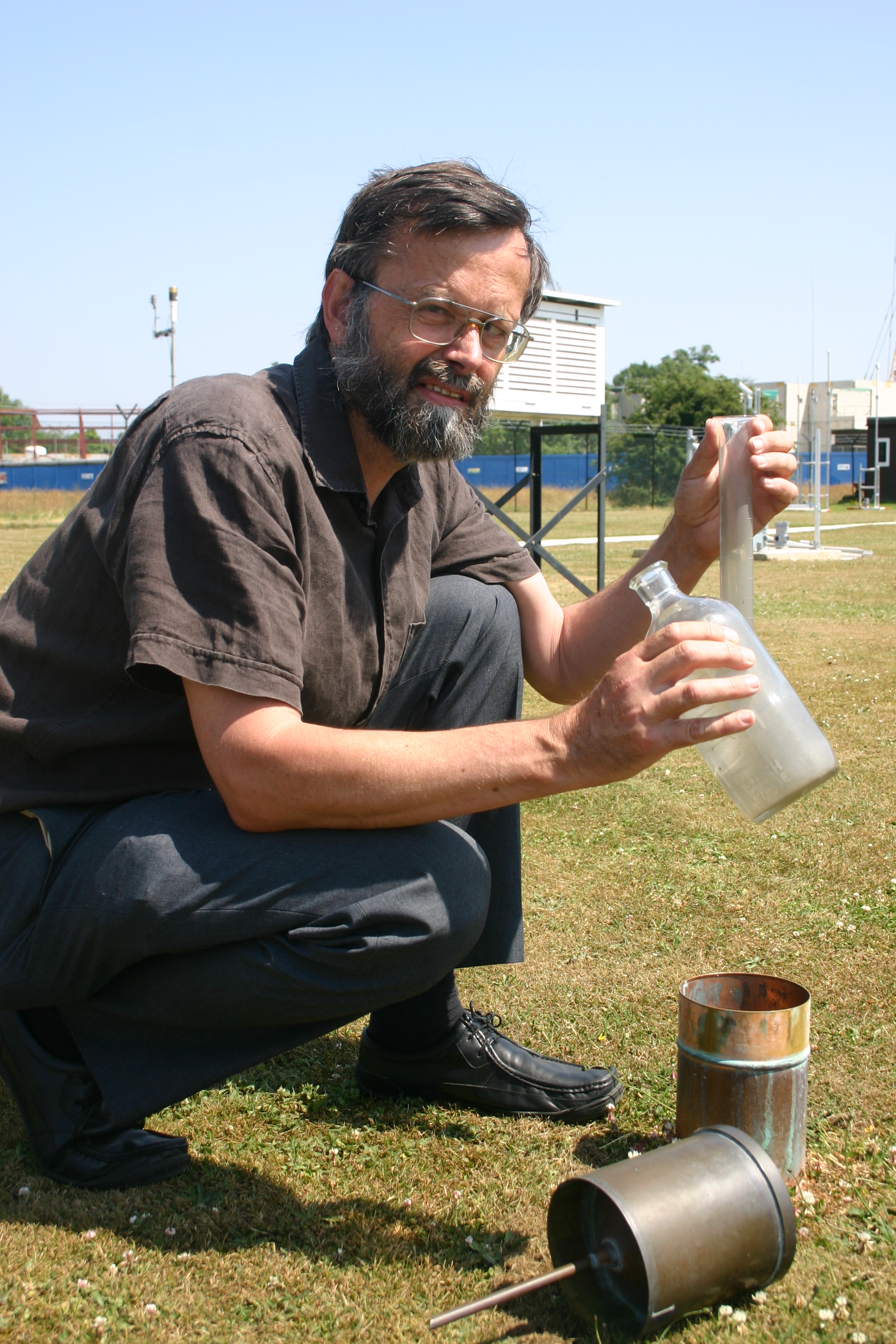
For over 3 decades, Roger Brugge has demonstrated a dedication to his profession, engaging in meteorological outreach activities to schools and other organisations within Reading and Maidenhead, providing leadership within the amateur meteorologist community, and ensuring that long weather records from the University of Reading are available to a wide public audience. Roger has played a major role in the Department of Meteorology’s outreach programmes to schools and other local organisations such as scout groups, local astronomical societies, presenting and enthusing his passion for meteorology to many hundreds of teachers, students and the general public over the years. In doing so he helped devise and run many interactive activities such as the Richardson Forecast Factory, Taking Observations and Plotting Weather Charts, the Primary School Climate Change Coursebook, meteorology taster days, and work experience weeks as well as assisting with the University of Reading Meteorology Observatory Tours.
Roger Brugge is well-known amongst the amateur meteorologist community, particularly in his role as voluntary Editor of the monthly Climatological Observer’s Link Bulletin, a role he has fulfilled for over 20 years, producing in this time almost 300 monthly publications and valuable Climatological Averages. He has contributed observations from the Maidenhead weather station and East Berkshire temperature records, informative World Weather summaries and provided monthly quality control of Oxford University daily weather data for the Oxford University observatory. His book, “Setting up a Weather Station and Understanding the Weather” is a valuable reference for amateur meteorologists.
Roger almost single-handedly digitised the entire manuscript of weather records from the University of Reading’s London Road climatological station, which operated from 1908 to 1967, more than doubling the digital observational record. The records are now used and quoted widely, for example for school and student projects and in local media references during extreme weather events, and formed the basis of a co-authored book, One Hundred Years of Reading Weather, published to commemorate the Department of Meteorology’s 50th anniversary, which itself formed the basis of a very successful University Public Lecture (jointly with Stephen Burt), which remains the University’s best-attended Public Lecture to date. He has also helped to manage the department’s observatory data stream and the “met jobs” mailing list, a valuable resource for meteorological job vacancies. He also regularly supplies vital information to local councils, the police, sailing clubs, schools, hospitals and Universities.
Based upon this substantial and dedicated service to his profession that include meteorology outreach programmes, leadership within the amateur meteorologist community, and a visible role across the wider public community within Reading and Maidenhead, Roger Brugge is richly deserving of the Award for Outstanding Contribution to the Society or the Profession.
|
|---|
Journal Editor Awards
The Meteorological Applications Editors’ Award
Dr Meinolf Kossmann

Dr Meinolf Kossmann is always punctual and pro-active in handling manuscripts and working on reviews himself. He attends all the Editorial Board meetings and is always very active in bringing his concerns, suggestions and ideas for improving the journal to each. Meinolf has co-led a very popular Special Issue for Met Apps “Atmospheric Processes and Applications in Urban, Coastal, and Mountainous terrain” which has had more papers accepted (15) than any other Special Issue in the past. We think that this topic was an excellent choice for a Special Issue and could contribute to widening the audience of the journal.
|
|---|
The International Journal of Climatology Editors’ Award
Mr Mike Kendon, Dr Mark McCarthy, Dr Svetlana Jevrejeva, Professor Tim Sparks and co-authors
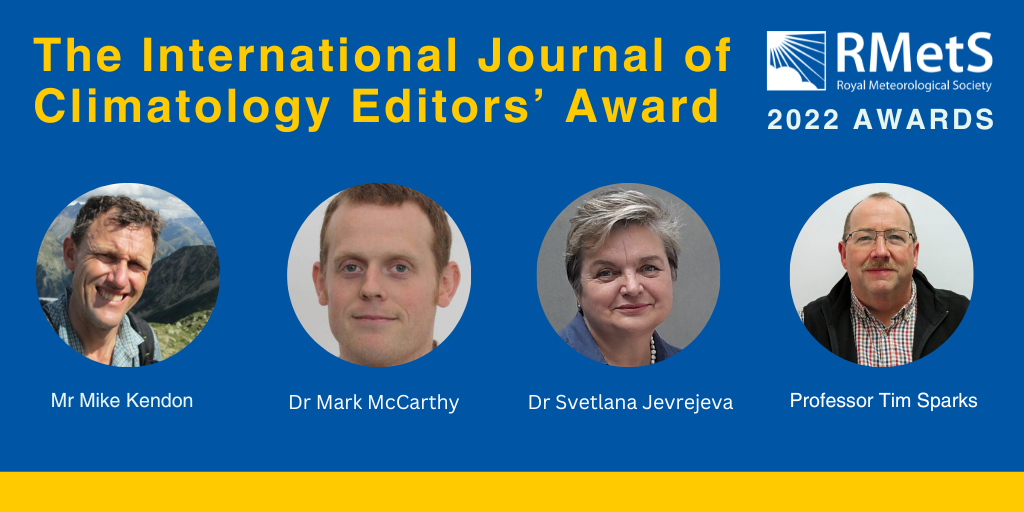
This Award recognises the team of authors who annually produce the State of the UK Climate reports. These have been published as a Special Supplement to the International Journal of Climatology since 2017.
Mike Kendon is a climate information scientist working for the Met Office National Climate Information Centre (NCIC). He maintains and develops systems, software and products to monitor the UK’s climate, including the Climate Grid software which is used to generate the HadUK-Grid dataset of gridded climate data for the UK. This is the principal data source for monitoring the UK's climate based on the land network of weather stations, with monthly temperature extending back to 1884 and monthly rainfall back to 1836.
Mark McCarthy is science manager of the NCIC, providing monitoring and analysis of UK climate variability and change. Mark's work is to lead the NCIC team to provide underpinning observational data and analysis of UK climate. The purpose of the group is to help government, public, and commercial customers by providing an authoritative source of UK climatological data products, enable the UK to understand the climatological context of weather and climate events as they happen, and to enable society to better understand and manage risks and opportunities arising from climate variability and change.
Svetlana Jevrejeva is a sea level scientist working at the Marine Systems Modelling group, National Oceanography Centre (NOC). She specialises in the synthesis of observations and models to develop our understanding of physical mechanisms for global and regional sea level rise and variability, their impact in coastal areas, changes in tropical cyclones in warming climate and extreme sea levels.
Tim Sparks has a background in applying quantitative techniques to biological data in historical or long-term phenology datasets that can provide information on environmental, including climatic, change. He re-established a phenological network in the UK in 1998, now run by the Woodland Trust as Nature’s Calendar, and acts in a voluntary capacity for the Trust.
Mike Kendon is lead author of the annual State of the UK Climate reports. This annual series of articles have given IJOC both national and international exposure, constituting a model for other similar publications in the future. The Editors recognise the import work of Mike as his co-authors in producing this report.
|
|---|
The Quarterly Journal Editors’ Award
Dr Silvio Davolio
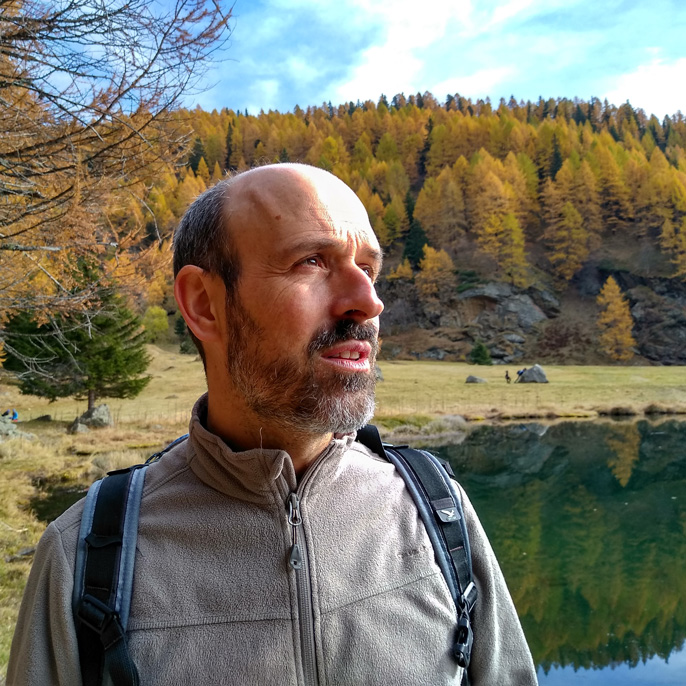
Dr Silvio Davolio has been an associate editor of the Quarterly Journal for over 12 years making him one of our longest-serving associate editors. During that time he has handled a large number of manuscripts on a broad range of topics including convection, weather systems and precipitation. He is always willing to help the journal, including taking on difficult manuscripts, and handles all aspects of the role with efficiency and with skill. We would like to recognise this sustained contribution to the journal over many years.
|
|---|
The Geoscience Data Journal Editors’ Award
Dr Liqiang Xu and Professor Chris Reason
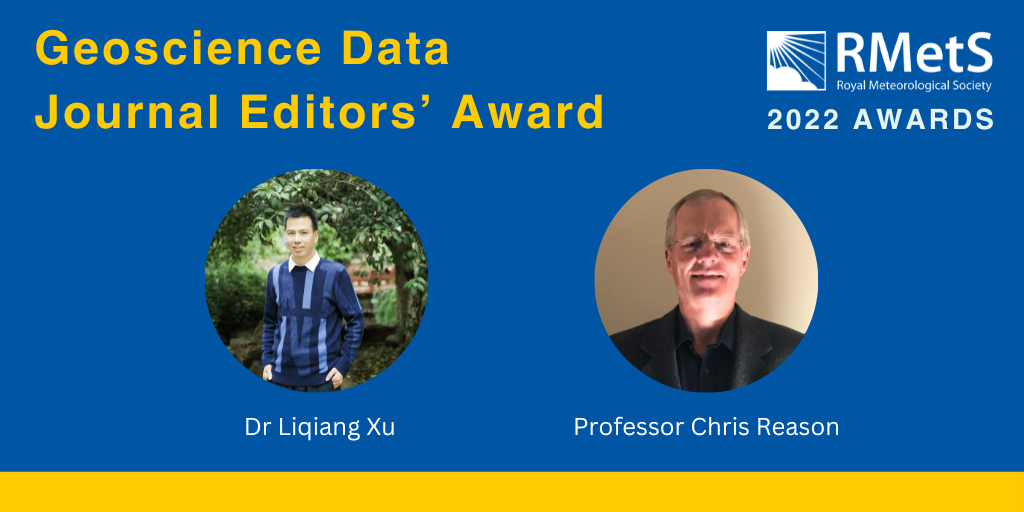
The nominees were selected for their dedicated service as associate editors of Geoscience Data Journal (GDJ). They have always handled their assignments with care and speed. Specifically, they handled 9 and 7 manuscripts, respectively, with an average processing time of 3 months, excelling among our editorial team. Both are awarded the GDJ Editors’ Award for 2022 in recognition of their outstanding contributions.
|
|---|
The Atmospheric Science Letters Editors’ Award
Dr Lili Lei

Dr Lili Lei has been an Associate Editor at Atmospheric Science Letters (ASL) only since May 2022, however in this short time she has handled four manuscripts with an average turnaround time of 33 days. This turnaround time is one of the fastest in ASL, and the Editors-in-Chief of ASL felt that Lili deserved the award for this as it encompasses one of the aims of ASL - to be a fast publication journal. Dr Lili Lei’s expertise in data assimilation and predictability has been invaluable to ASL; she finds reviewers who provide high quality reviews resulting in high-quality publications. The Editors-in-Chief of ASL would like to thank Dr Lili Lei for her commitment and enthusiasm for handling manuscripts for ASL.
|
|---|
The Climate Resilience and Sustainability Editors’ Award
Professor Dr Wouter Peters and Dr Gerbrand Koren
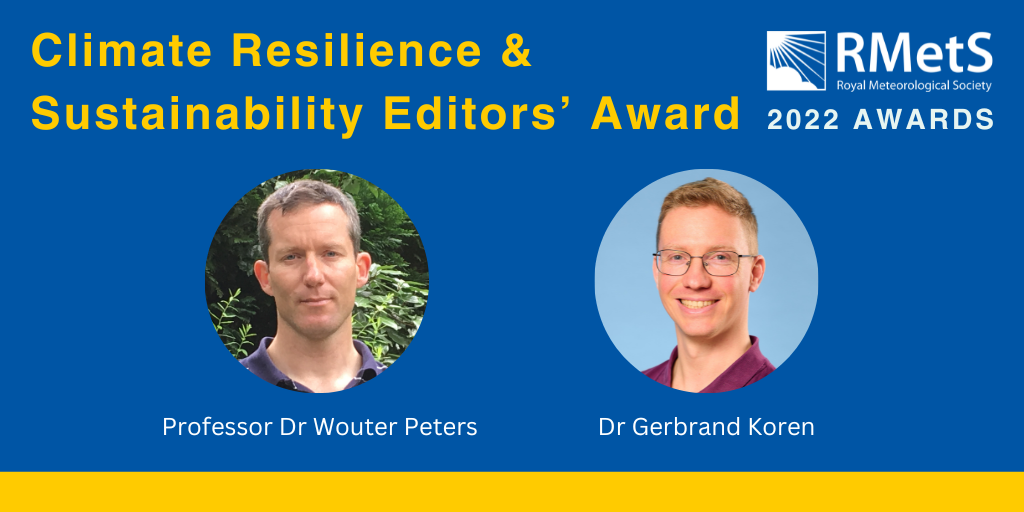
The nominees were selected for their dedicated service as guest editors of Climate Resilience and Sustainability (CRS). They have always handled their assignments with care and speed. Specifically, they jointly handled almost all the manuscripts of the CRS Brazil Special Issue, which had been published already and highly commented. In recognition of their outstanding contributions, both are awarded the CRS Journal Editors' Award.
|
|---|

